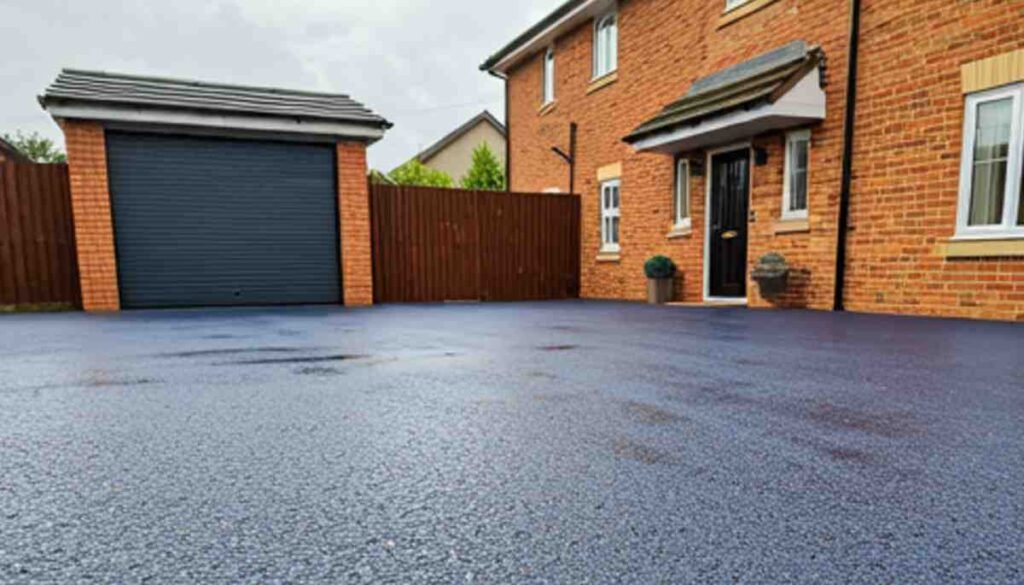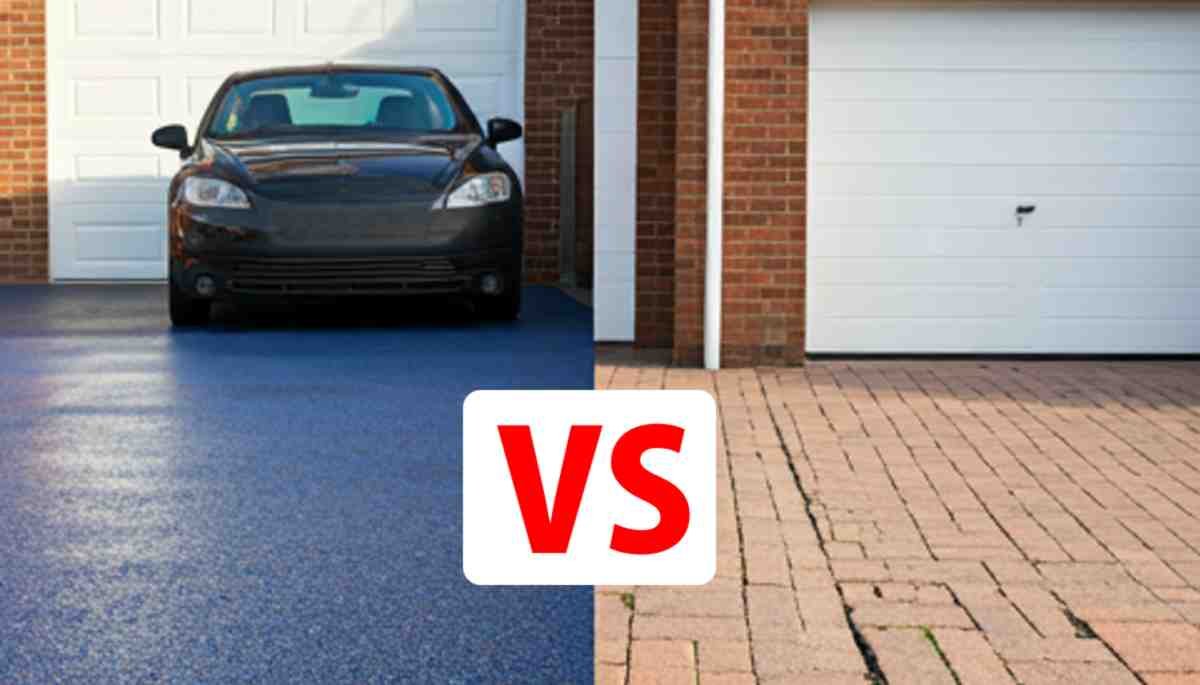Resin-bound surfaces offer excellent water permeability, making them a low-maintenance option ideal for preventing puddles, while block paving provides a customizable and visually appealing choice that requires more upkeep.
On the other hand, tarmac is a cost-effective, durable solution, though it lacks the design flexibility of resin or block paving. Each option has its pros and cons in terms of longevity, appearance, and installation costs, so selecting the best driveway depends on your specific needs and budget.
Resin Bound Driveways
What are the benefits of resin-bound driveways?
Resin-bound driveways provide high durability and low maintenance. The surface is permeable, allowing water to drain through, which reduces pooling. It’s also resistant to weeds due to its tightly bound structure. Resin driveways offer customizable design options, including various colors and textures, making them suitable for modern and traditional homes alike.
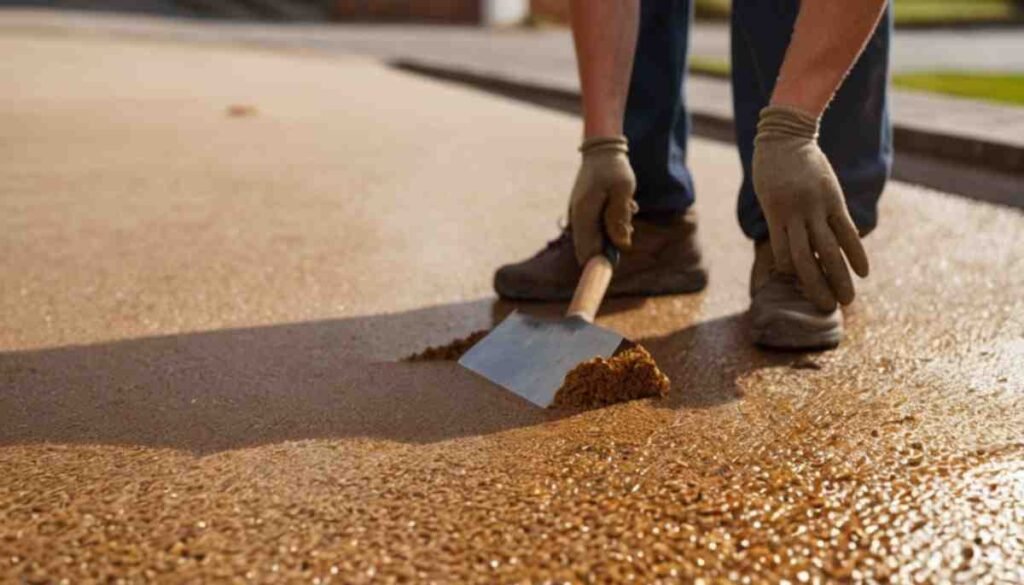
How durable are resin bound surfaces?
Resin driveways can last 15-20 years with minimal maintenance. The surface withstands heavy loads and doesn’t crack easily, making it a durable option for both residential and commercial properties.
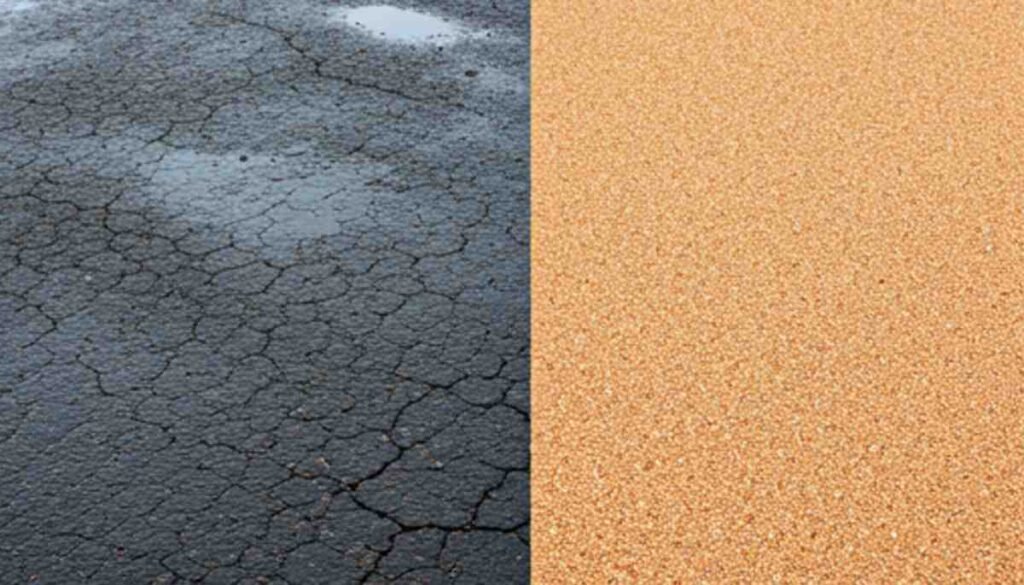
What is the maintenance requirement for resin bound driveways?
Maintenance is minimal, with occasional sweeping and pressure washing recommended to keep the surface clear of debris. This also prevents moss or algae growth, enhancing its longevity.
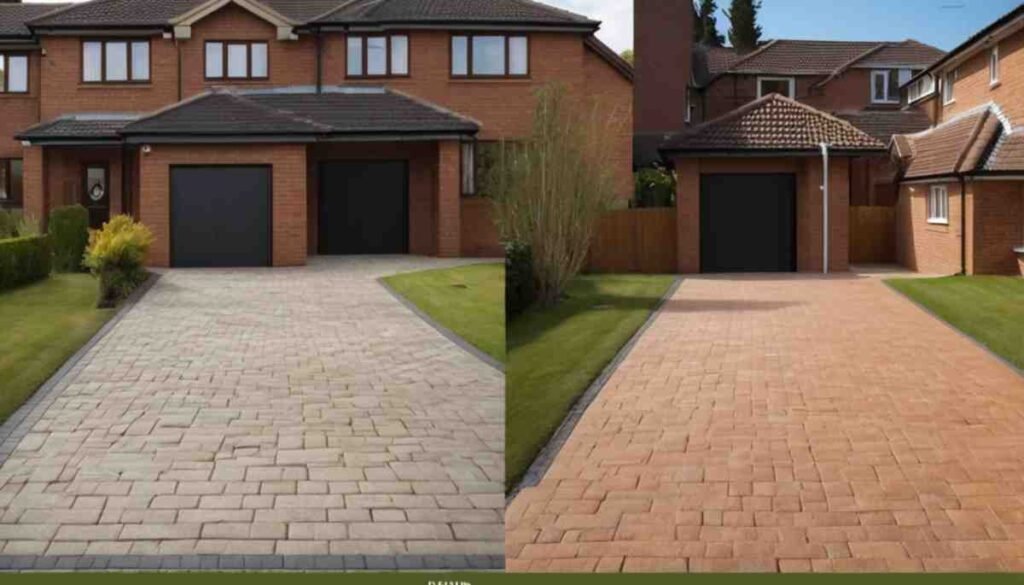
What is the cost of resin bound driveways?
Resin driveways typically cost between £50-£100 ($65 USD to $130 USD) per square meter, depending on the aggregate used and the overall project size. While more expensive than tarmac, they can be more cost-effective than high-end block paving installations.
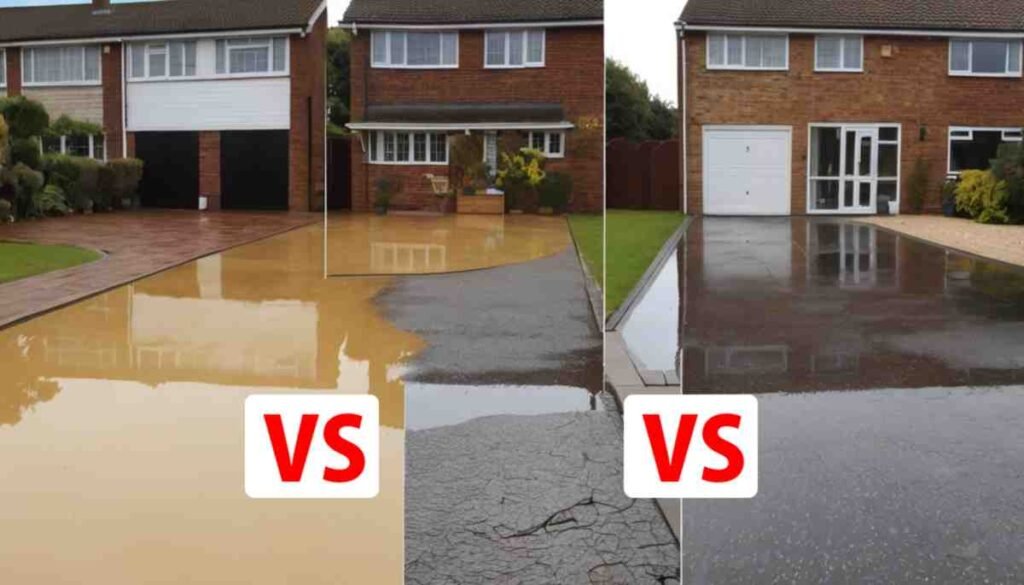
Block Paving Driveways
What makes block paving driveways stand out?
Block paving driveways are known for their versatility in design. They consist of individual bricks laid in intricate patterns, offering a wide variety of customization options. Homeowners can choose from materials such as clay or concrete for different aesthetic outcomes.
How long does block paving last?
Block paving is durable and can last for 20-25 years if properly maintained. Over time, bricks may shift, but they can be replaced or repositioned, extending the driveway’s lifespan.
How much maintenance does block paving require?
Block paving requires frequent maintenance. Weeds can grow between the bricks, and the surface needs regular cleaning to prevent the buildup of dirt and moss. Periodic re-sanding of the joints and sealing can improve the driveway’s durability.
What are the costs involved with block paving?
Block paving costs range from £75-£150 ($97USD to $190USD) per square meter depending on the materials and design complexity. While more expensive upfront, its durability and repairability make it a worthwhile long-term investment for some homeowners.

Tarmac Driveways
What are the main advantages of tarmac driveways?
Tarmac driveways are highly affordable and easy to install. They provide a smooth, durable surface that can handle heavy traffic, making them suitable for larger properties and commercial applications.
How durable is tarmac compared to other materials?
Tarmac driveways last between 10-15 years. However, extreme temperatures can cause cracks or surface wear. Regular sealing can help extend the lifespan of a tarmac surface.
What maintenance is required for tarmac driveways?
Tarmac requires less maintenance than block paving but more than resin. Regular sealing every few years prevents cracking and ensures a long lifespan. Small cracks can be easily repaired with asphalt.
How much does a tarmac driveway cost?
Tarmac is the most budget-friendly option, with costs ranging from £40-£70 per square meter. Its affordability makes it a popular choice for homeowners looking for a cost-effective driveway solution.
Comparative Summary: Resin Bound vs Block Paving vs Tarmac
| Attribute | Resin Bound | Block Paving | Tarmac |
|---|---|---|---|
| Durability | 15-20 years | 20-25 years | 10-15 years |
| Maintenance | Low | Moderate (frequent cleaning) | Moderate (periodic sealing) |
| Permeability | Yes (water drains through) | No (needs proper drainage) | No (may need additional drainage) |
| Cost | £50-£100/m² | £75-£150/m² | £40-£70/m² |
| Customization Options | High | High | Low |
Which driveway type is the most cost-effective?
Tarmac driveways are the most cost-effective, with lower installation costs and moderate maintenance needs. However, resin bound surfaces provide better long-term value with lower maintenance and durability. Block paving sits in the middle, offering design flexibility but requiring more frequent upkeep.
Which driveway option is best for sustainability?
Resin bound driveways are more environmentally friendly due to their permeability. This allows water to naturally drain into the ground, reducing surface runoff and the risk of flooding. Tarmac and block paving typically require additional drainage systems.
